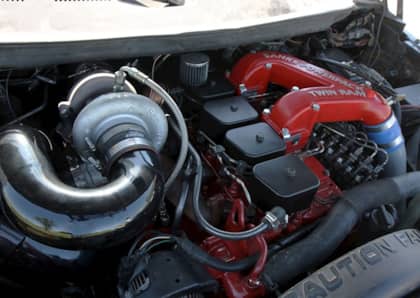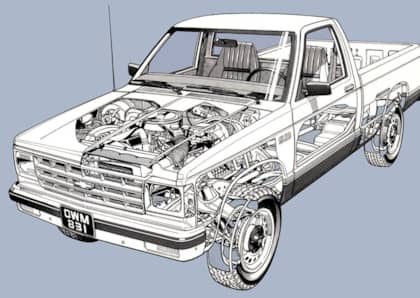USA vs Japan: How the Ford Mustang GT Compares to the 2023 Nissan Z
For fans of Japanese sports cars, the confirmation that Nissan would be introducing a new generation of the iconic Z for 2023 was a big deal.

And even bigger news was that new Z would have a standard twin-turbocharged 3.0L V6 that makes 400hp and 350 pound feet of torque.

While the Z has always been popular among sports car fans, having 400 horsepower on tap also pushes the Z into the V8 muscle car performance zone.

And one of the cars American buyers are likely to cross-shop against the new Z is the Ford Mustang GT.

So how do these two iconic rear-drive, two-door machines compare against each other in terms of performance, value and other factors? Let’s investigate.
Performance
With so many variants of the new Mustang available, the model that best aligns with the Z will be the 5.0-powered Mustang GT or perhaps the Mach 1 if you are matching against one of the high-end Z trims.

Having not yet hit the streets, it’s hard to tell exactly how the new Z will perform, but the new twin-turbo V6 should make the car quite potent.

With the current Mustang GT putting out 460 horsepower and 420 pound feet of torque from its 5.0 Coyote V8, the 400-horse Z will be at a power disadvantage, but that’s likely to be made up for by a lighter curb weight.

We aren’t sure exactly what the Z weighs, but it should be at least a few hundred pounds lighter than a Mustang GT. This could make for a close race when it comes to acceleration.

And while that same weight advantage could put the Z ahead in the handling department, the S550 Mustang is no slouch in the corners. Especially when you begin to option in things like magnetic suspension, or the other track-ready bits available on the GT Performance Package and Mach 1.

Whether its in a straight line or around a twisty track, the two cars should be well-matched—though the V8 Mustang may still end up ahead thanks to the work Ford has put into the S550 platform over the years.
Value
One of the selling points of the Mustang GT has always been its value. It's long been one of the cheapest paths to V8 performance, but going back to the original 240Z, value has also been a strong point of the Z Car.

Nissan hasn't yet released full pricing info for the new Z, but they have said to expect a starting price around $40,000 for the base "Sport" model.

At the moment, the cheapest 2021 Mustang GT you can get has an MSRP just under $38,000. This will undercut the base Z's price by a few grand, but you'll also miss out on a lot of the Mustang's optional performance goodies.

Likewise, to get Z's best performance hardware you'll probably want to go with the "Performance" model which includes larger wheels and tires, larger brakes and a mechanical limited-slip differential. We'd expect a starting price of at least $45,000 for that version.

The highly recommended Mustang GT Performance Package with its Brembo brakes, Torsen rear diff, additional cooling and more aggressive chassis tuning will raise the price to $44,000, and to upgrade to the Mach 1 you're looking at entry price of around $55,000.

By and large, the prices of the new Z and the Mustang look like they will parallel each other pretty closely, and we wouldn't at all be surprised to see a higher end Nismo Z eventually join the lineup to compete in the Mach 1's bracket.

American Muscle or Japanese Sports Car?
Ultimately, it probably won't be the raw performance figures or the relatively small difference in prices that will win over buyers comparing these two cars.

The Z will appeal not just to longtime Nissan fans or JDM sports car enthusiasts, but to those who prefer a lighter, smaller alternative to an American muscle car, while also delivering more power and higher limits than cars like the Toyota GR86 or Mazda MX-5.

The Mustang GT meanwhile, might be larger and heavier but it also provides the joy and sound of a naturally aspirated V8 engine. And while the Mustang's tiny rear seat is really only usable in a pinch or for carrying small kids, it at least has rear seats compared to the Z's two-seat only layout.

No matter which you might prefer, the fact that these two high-horsepower, rear-drive enthusiast cars with available manual transmissions will be doing battle in the 2020s is a great thing.
Enjoy them while you still can.
More From Driving Line
- Want to see how the new Z stacks up against the Toyota Supra? We cover all the details right here.







